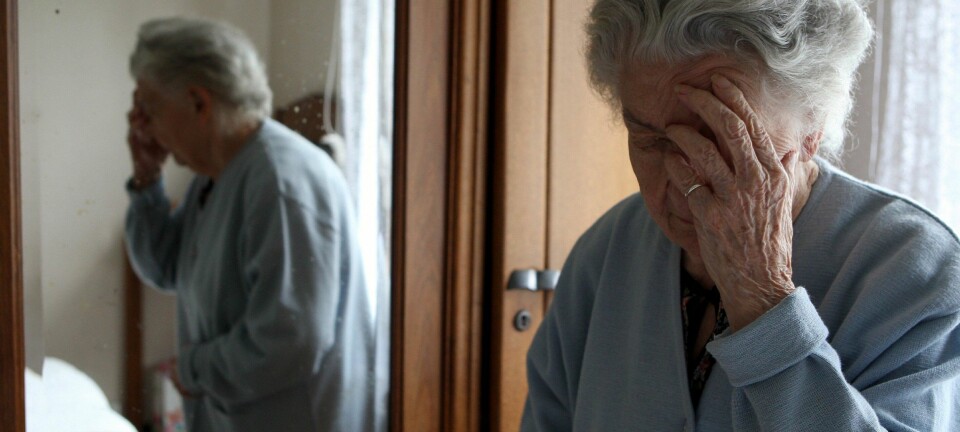An article from University of Oslo

We need to rethink palliative medicine
Palliative care should be provided to patients with neurological disorders just as it is offered to cancer patients, according to neurologist.
Denne artikkelen er over ti år gammel og kan inneholde utdatert informasjon.
We live longer, and at the end of our lives more of us will suffer from Parkinson's disease, Alzheimer's or strokes. These and other neurological disorders will become much more common.
The prognosis is dramatic: In a few decades, nursing homes will have to give care to more than twice as many sick and helpless Norwegians than they do today.
Not just cancer
The health sector must therefore rethink its strategies on palliative care, i.e. treatments for relieving and preventing the suffering of patients.
Palliative care has traditionally focused on cancer, but now it's time to include neurological patients, claims neurologist Morten Horn.

"Neurology is The New Frontier for palliative care," he says.
Horn is a clinical consultant at Oslo University Hospital and a PhD candidate at the Institute of Clinical Medicine, University of Oslo.
Recently he lectured on palliative care for non-cancer patients at a conference in Oslo. His message is clear:
Neurological disorders should be as much part of palliative medicine as cancer.
Neurology has undergone a therapeutic revolution. But there isn't a cure for everything. That is why Horn is concerned about those who have been dealt the worst cards; those who have an illness that can't be treated. It's about providing relief and safeguarding a good death.
A formula that works
"The oncologists have done a good job within palliative care; they have found a formula that works. Now the formula must be shared," says Horn.
Lars Jacob Stovner, professor in neurology at NTNU, confirms that neurological disorders will be a substantial health problem in coming years, and that they have already become common.
Professor Espen Dietrichs, neurologist at Oslo University Hospital, agrees with Horn that neurological diseases will require substantial resources in the future.
"Chronic neurological diseases amongst older people are becoming an increasingly serious social problem. Thus, the need for palliative forms of care will also grow," says Dietrichs.
Over half of the budget
Figures from 2010 show that the annual costs associated with diseases of the brain in Norway amount to about 11 billion euro, according to one report, including borh neurological and psychiatric disorders. The figure includes direct medical costs and indirect costs, such as sick leaves.
In comparison, the total budget for the Norwegian Ministry of Health and Care Services this year is 19 billion euros.
Are Brean, a clinical consultant at Oslo University Hospital and chair of the Norwegian Neurological Association, adds to the picture:
"Diseases of the brain are the most important cause of disability. This fact has not been sufficiently communicated in public debate. People quite simply don't know about this," he says.
The New Frontier
But if neurology is actually to become the new major field of research within palliative care, the neurologists must also acquire in-depth knowledge of the area.
Professor at the University of Oslo Nina Aas, is also head of Section for palliative care at Oslo University Hospital. She passes the buck to the neurologists and challenges them to get formal training in palliative care.
Horn agrees. It's the only way that this field can become The New Frontier.
----------------------------
Read the Norwegian version of this article in forskning.no
Scientific links
- Gustavsson A: Cost of disorders of the brain in Europe 2010. Eur Neuropsychopharmacol. 2011 Oct;21(10):718-79.
- Stovner LJ: Cost of disorders of the brain in Norway. Acta Neurol Scand Suppl. 2010;(190):1-5.
External links
- Lars Jacob Stovner's profile
- Nina Kathrine Aass' profile
- Morten Horn's profile
- Espen Dietrichs' profile
































